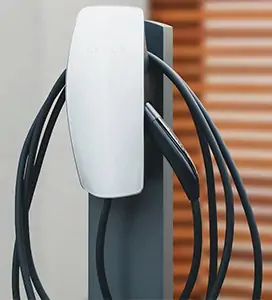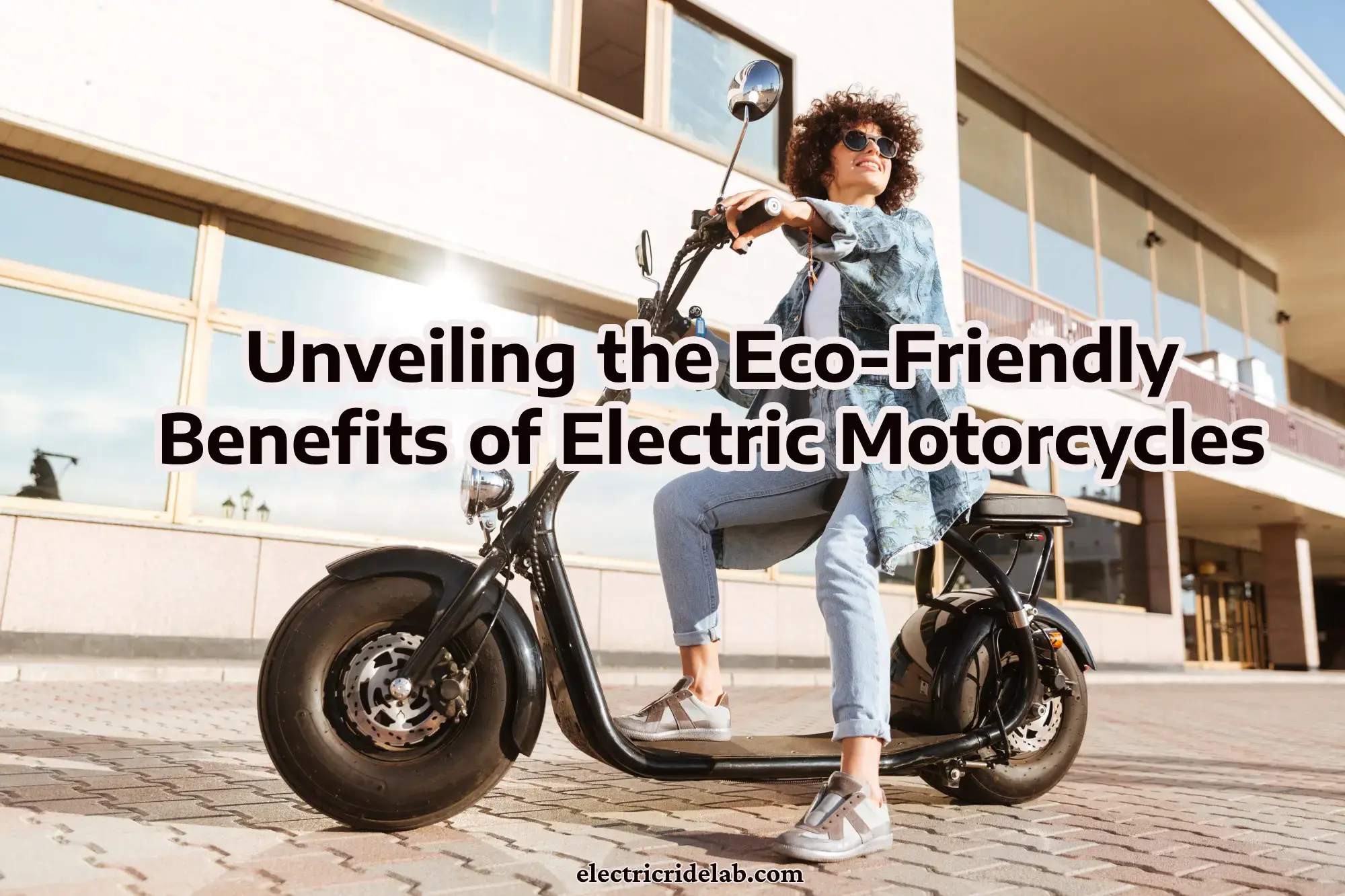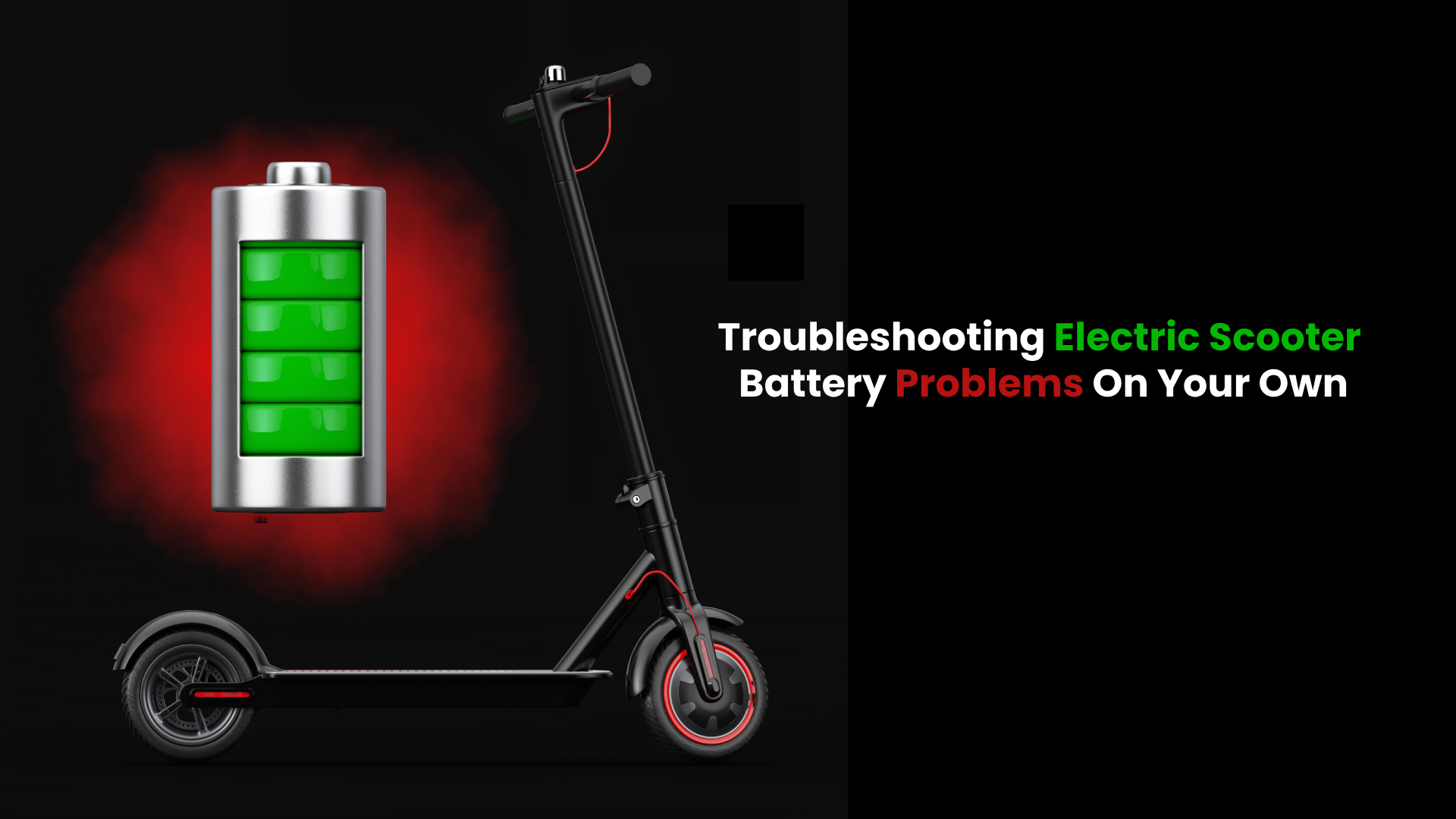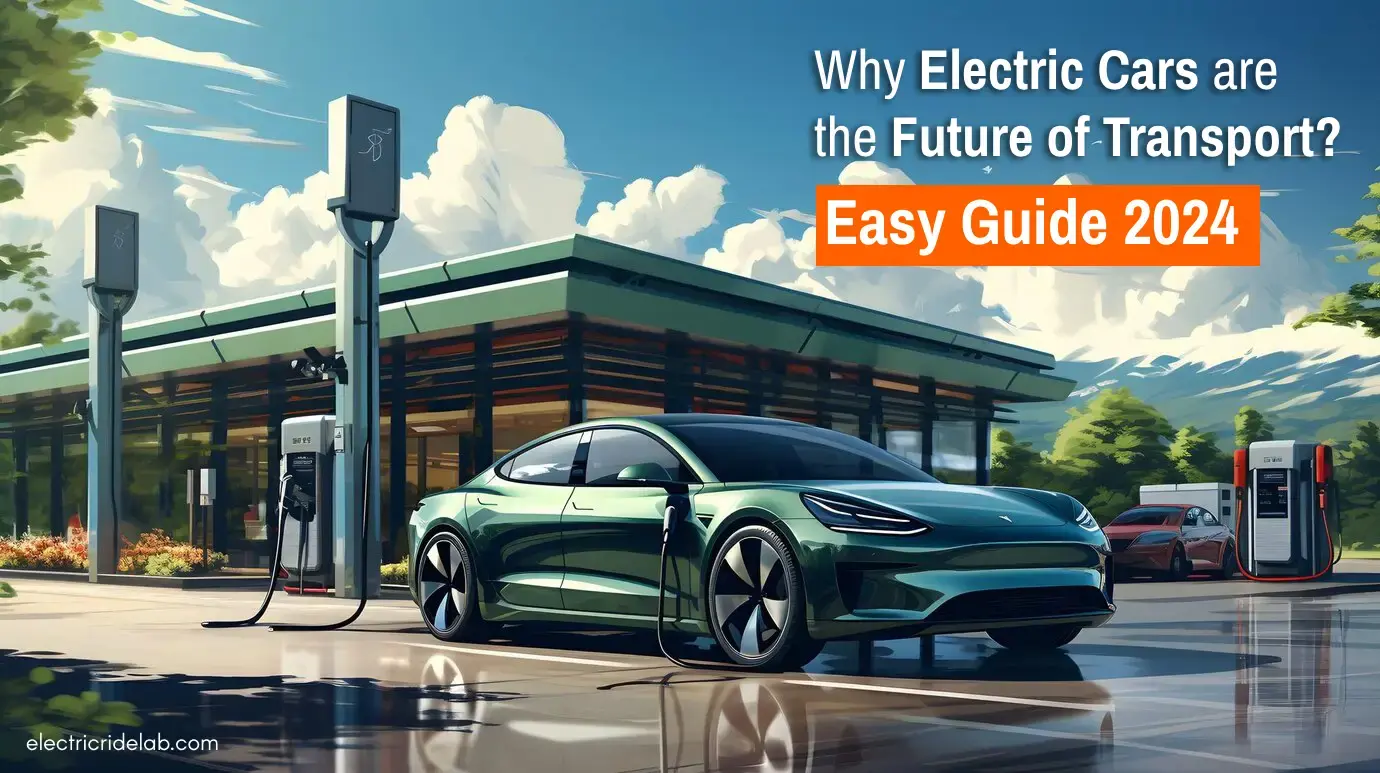You would have most likely heard of Tesla if you are an ardent Electric Vehicle (EV) fanatic! Tesla is undeniably an impressive electric vehicle that ticks all the boxes. If you plan to buy a Tesla or any other EV in the future, you might want to also consider getting a home charger for a Tesla.
Such a charger will help you to juice up your automobile conveniently from the comfort of your home and spare you the bother of queuing up at the gas station! So the million-dollar question here is- which EV home charger for a Tesla should you buy?
The following are my leading choices for home EV chargers for a Tesla.
Table could not be displayed.Also Read:
Cars Self-Driving and Where It Can Work? Electric Ride Lab Opinion Featured on Lifewire
Best Home Charger for a Tesla Reviews
#1. JuiceBox 32 Smart EV Charging Station
No products found.The JuiceBox 32 Smart Electric Vehicle Charging Station is a very durable and reliable home charger for a Tesla. Courtesy of this charger, you will never have to search for an EV charging station while you make your way to work or are out running some errands.
The most appealing feature of the JuiceBox 32 is its universal J1772 plug that can efficiently charge any EV model. Hence, if you are looking for a versatile EV charger, then the JuiceBox might be a great option for you.
You have the option of installing this charging station outdoors or inside your garage space. The housing of the station is manufactured from aluminum and is fire and water-resistant.
Want to hear something really fancy? You can connect this home charger with your smartphone or computer to electronically schedule charging sessions for your Tesla!
No products found.
#2. LEFANEV 32A Electric Vehicle Charger
No products found.If you are looking for a very quick EV home charger for a Tesla, then the LEFANEV 32A Electric Vehicle Charger might be an ideal option for you. Here is an interesting statistic for you- this LEFANEV charger can juice up your EV automobile 6 times faster than any run-of-the-mill EV charger!
The smart charger features an Intelligent Chip that monitors all the conditions during your EV’s charging procedure including the current, voltage, power consumed and charging time. You may view and keep track of all of these numbers on the LCD display that comes equipped with the LEFANEV.
This EV charger is also waterproof enabling you to charge your EV in the rain without any concern.
No products found.
#3. Blink Home Level 2 EV Charger
No products found.This home charger for a Tesla is another popular model to charge your EV. You can leverage this Level 2 AC charging station to completely charge your vehicle while it is parked in the driveway of your home or your garage.
This Blink charger allows you to charge your Tesla overnight when the utility rates are low. That translates into more money saved!
What’s more, the Blink Home Level 2 EV charger is 100 percent compatible with the J1772 adapter of all Tesla models and any other plug-in Electric Vehicle such as Chevy Volt, Ford Fusion and Nissan Leaf.
No products found.
How Long Does an EV Charge Take?
The time it will take you to juice up your electric vehicle can be more than 10 hours or as little as half an hour. The precise charging time is dependent on a couple of factors such as the charging point’s speed and the vehicle’s battery size.
A standard electric car that features a 60kWh in-built battery can take just under 8 hours to charge from zero to full with a 7 kilowatts charging point.
To give you a rough idea, a quick EV charger can fill the majority of the batteries to 80 percent in less than 60 minutes. That is blazing fast if you ask me!
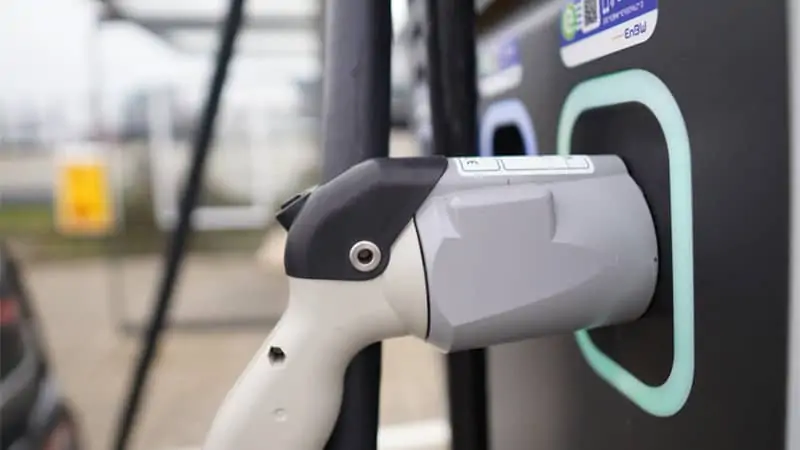
Photo created by unsplash
Can Any EV Use a Home Charger for a Tesla?
This is a common query people have! The brief answer is that a few of the Tesla chargers such as the Tesla AC EVSE can be used to charge other non-Tesla EVs depending on the settings of the EVSE (Electric Vehicle Service Equipment).
However, Tesla’s Super Home chargers for a Tesla are exclusive and you cannot use them with any other Electric Vehicle as the plugs are not compatible.
Can You Charge an EV With a Generator?
Yes, you can charge your Tesla or any other electric vehicle with a portable generator but there are some conditions!
You should have an inverter generator that produces a clean sine wave. This clean wave indicates that the power produced by the generator is stable. If the output produced by your generator is not a clean sine wave, your EV might simply refuse to charge!
Also, it is vital that you ground your generator while you charge your EV or your car may not charge.
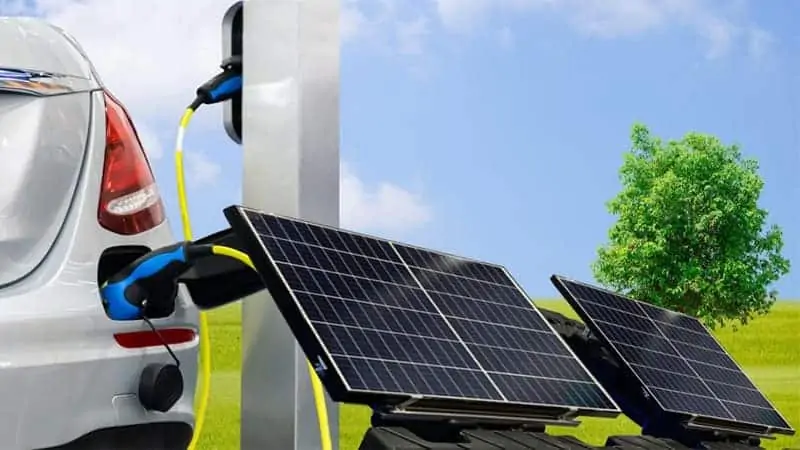
Photo created by unsplash
Can You Charge an EV With Solar?
Yes, a solar installation has the capacity to charge your electric vehicle. It is very much similar to how it will provide energy for the rest of the appliances in your home.
You will be surprised to know that even a small-sized solar panel array featuring just a couple of solar panels can provide adequate power to charge the battery of your electric vehicle. How cool is that?
Can You Charge an EV in the Rain?
The good news for you is that it is completely safe to use this home charger for a Tesla in almost any weather condition. Yes, that includes rain as well! That is because EV’s charging ports are specially engineered to endure water and rain intrusion as well particles of dust that can cause a lot of damage to an electric system.
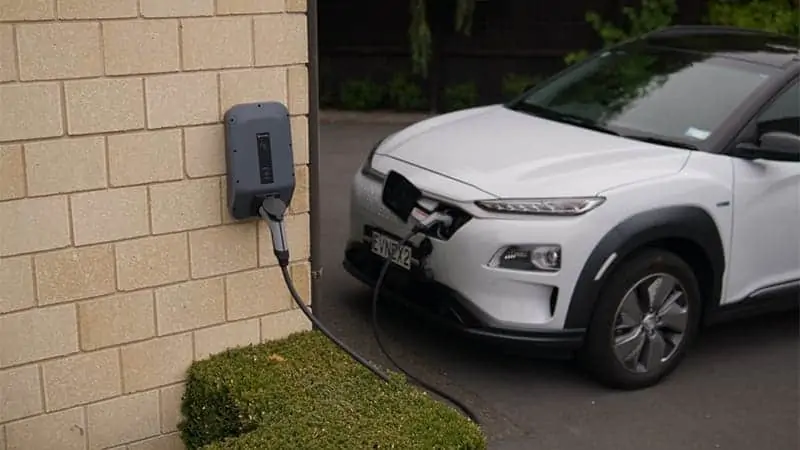
Photo created by unsplash
What Size Breaker Do I Need for a Home Charger for a Tesla?
If you want your Tesla to charge (or juice up!) in the shortest possible time, it is recommended that you use a circuit breaker that has been rated for 100 amps.
In some commercial or residential locations, this power level is not available readily. Hence, what you can do is fine-tune the High Power Wall Connector’s existing setting for 40-100 amp breakers.
FAQ About Charging Stations
Who installs EV charging stations?
The market of EV charging stations is getting bigger every year. Some of the leading companies in the United States of America who install EV charging stations include Schneider Electric, Siemens AG, Tesla, ABB, Eaton and Blink.
These organizations have garnered a strong reputation for manufacturing reliable charging stations that support a variety of EV batteries.
How much does a home EV charging station cost?
The cost of a home charging electric vehicle charging station varies depending on where you reside, which charging station you buy, and whether it is portable or hardwired to your house. You can expect such a station to set you back by anywhere between 1,000 dollars and 2,500 dollars (national average).
Most folks pay about $1,200 for a 240 Volts charger, outlet and a wall-mounted system.
At times, the cost can go up to as high as 4,500 dollars for a Level 2 EV charger that the manufacturers have designed for 2 vehicles with a 240 Volts outlet, circuit panel upgrade and pedestal mount.
Are EV charging stations free?
The majority of the folks charge their EV at charging stations in public spaces. These charging stations can be completely free of cost, subscription-based, or pay as you go with the property owners or networks setting the prices.
A few of the automakers, that include Tesla and Nissan might provide free-of-cost public charging at particular chargers.
Keep in mind that though you might pay up for public charging services sporadically, driving an electric vehicle can be a very efficient way to save a lot of money.
What is the difference between a Tesla supercharger and a regular charger?
A Tesla Supercharger puts Direct Current (DC) right into the battery of your Tesla vehicle at about 400 V. This is the operating voltage of the battery. Tesla Superchargers use up to 125,000 W while you use them to charge your car.
In contrast, a regular standard charger puts Alternating Current (AC) into your Tesla where an onboard charger converts it to direct current. Next, this direct current is powered into the battery of the Tesla vehicle. Regular chargers generally operate at 240V and use up to 6000 W to 12000W.
You can expect a regular charger to add around 21 miles of range for every hour that you plug it in. On the other hand, a Tesla Supercharger is far more efficient! It can easily add as much as 300 miles of range in a single hour.
Hence, if you are looking to charge your Tesla quickly, then a Tesla Supercharger might be the best option for you.
What is the cost of building a Tesla Supercharger in your home garage?
Unfortunately, it is not possible to build a Tesla supercharger in the garage in your home. That is because to build it, you will require industrial grade electric capacity and you cannot produce this in your home garage!
No products found.

